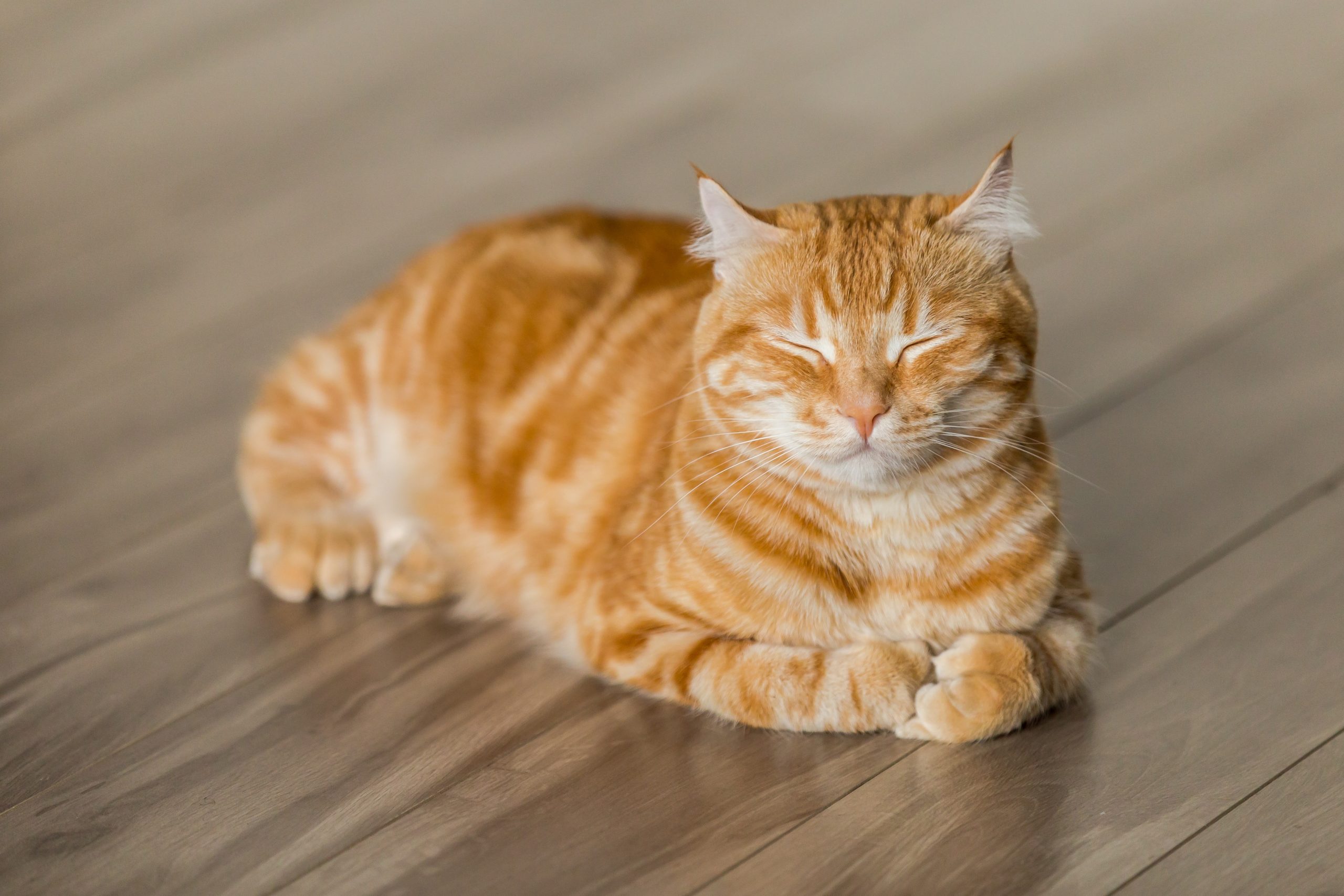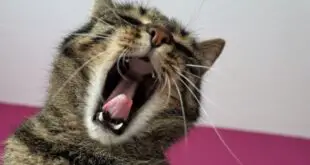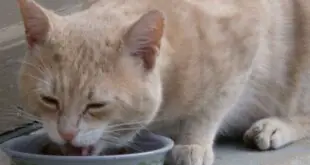This post may contain affiliate links. Please read our disclosure.
Are you concerned about your cat because of issues such as a cat coughing fit?
Whether it is accompanied by sneezing, wheezing, coughing up worms, or hairballs, cat coughs causes the owner a lot of worry as it may indicate an underlying issue within the respiratory system.
Article Contents
Why Is My Cat Coughing a Lot?
Generally, it is normal for a cat to cough, but when it is coughing a lot it means there is something irritating your cat’s throat, lungs, or airways. There are several reasons or causes why your cat is coughing a lot and we will explore these reasons in this article.
Good news is most of the causes are easy to treat, but unfortunately there are a few cases that are severe, and require the intervention of a veterinarian.
Some of the reasons why your cat is coughing a lot include:
- Asthma – Technically if your cat spends most of its time outdoors, there is a high likelihood that the cat will get asthma. Some of the agents that cause asthma include pollen, cigarette smoke, stress, little cat dust, and perfume. However, if its mainly an indoor cat, then this likely isn’t the problem unless you are keeping your windows open a lot more recently.
- Heartworms – This condition is commonly spread by mosquitos. If you are living in swampy areas, where there are several mosquitos, then your cat is at risk of contracting the condition. The pet coughs a lot when it has heartworms and sometimes it can be misdiagnosed as asthma as they have similar symptoms.
- Lung cancer – If your cat is suffering from lung cancer it will cough a lot. Therefore, it is recommended that you take it to a specialist to establish if your cat is suffering from lung cancer. Usually with lung cancer in cats, their coughing is often times accompanied by a little bit of blood in the mucus.
- Lung infection – In particular if your cat is suffering from a fungal infection, the cat will cough a lot. These should usually get seen by a vet so that it can be treated quickly and will avoid any long term effects.
- Allergies – The causes of allergies are the same as those for asthma. Again, if your cat is suffering from an allergy the cat will cough a lot. Did you change up their diet? Are they going outdoors more? Think of anything new that might involve you cat to see if allergies could be at play.

Cat Coughing Fits
While coughing signifies that your cat is having a problem, coughing fits indicate that the problem is even bigger than anticipated.
Coughing fits by definition means a long or large chain of consecutive coughs typically in a short period.
When your cat is having coughing fits you are strongly advised to take the cat to a veterinarian. Ignoring the cat’s condition by not taking it to the vet may worsen the situation, and could lead to more longer term issues.
They might be suffering from more than two conditions such as asthma and heartworms, making them have coughing fits.
Cat dry coughing fits
Cat dry coughing fits are extremely dangerous for your pets. They tend to weaken the cat, making it even lose its appetite for food. If left untreated the cat may easily die. It is easy to detect that your cat has persistent dry coughs.
In essence, you will notice that your cat is extremely straining to cough.
When you note that your cat is having dry cough fits, please make sure that apart from taking it to the vet you supply your cat with sufficient water. Water technically helps in lessening the cat’s dry coughing fits.
Cat Wet Coughing Fits
While wet coughing fits may not be as harmful as dry coughing fits, they can facilitate the transmission of pathogens from one cat to another through the moisture particles that are released into the air.
In other words, if you have two cats and one is having wet coughs, the likelihood that the other cat will be infected is high.
Thus, just like in the case of cat dry coughs, you are advised to take your cat to the veterinarian for adequate examination and treatment.
Cat Coughing Sneezing Fits
Cat coughing and sneezing fits are highly dangerous because they can kill the cat if left untreated for a long. During coughing sneezing fits, the cat loses a lot of water and uses a lot of energy.
In fact, that is the main reason why the cat gets easily weakened and can even fail to stand up leave alone walk.
When you notice that your cat is coughing and sneezing fits take it to the vet as soon as possible. The vet will diagnose the cause of sneezing and wheezing in your cat and give it the appropriate medication.
Cat Coughing Up Worms: Causes and Treatment
Cat coughs up worms such as lungworms. These lungworms make the cat cough excessively when a vet addresses them on time.
Cats typically get infected by coughing up worms by the lungworms when they eat prey or drink water containing the larval stage of the lungworms.
The larvae then move out of the intestine through the bloodstream into the lungs and are then coughed up by the cats or passed in feces. The rodents, birds, and snails may eat these worms, and other pets and the cycle repeat itself.
Treatment of the coughing up worms is through the use of anti-parasitic treatments like Levamisole, Albendazole, Fenbendazole, and Ivermectin. These drugs help in the gradual elimination of the worms from the cat.
Cat Coughing Up Hairball
Occasionally, hair collects in your cat’s stomach, forming hairballs. When your cat is having repeated coughing, the hairballs are usually brought up, and the cats typically pass the hairballs after they have taken their meals.
The cat should cough up one hairball in a week if it does more than that you should take it to the vet.
Cat coughing no hairball
If your cat is having a problem coughing up the hairballs, try a home remedy such as petroleum or hairball paste.
Remember, that hairballs are dangerous and a big problem for our cats therefore, if the cat does not cough up the hairball, try the home remedy, and if it fails, you need to visit the specialist.
Treatment of Coughing in Cats
Generally, the treatment of your cat, if it is coughing, depends on the cause of the cough.
For instance, if it is a parasite such as heartworms, medications for killing heartworms will be administered to the cat. If it is an infection, the cat should be given antibiotics.
If the cause is allergies or asthma, anti-inflammatory medications or antihistamines may be given to the cat.
In general, it is the physician who establishes the kind of medication that you should give your cat based on the identification of the cause.
READ MORE: Chronic upper respiratory infection in cats
 Petnile Comprehensive Pet Care Guides
Petnile Comprehensive Pet Care Guides


